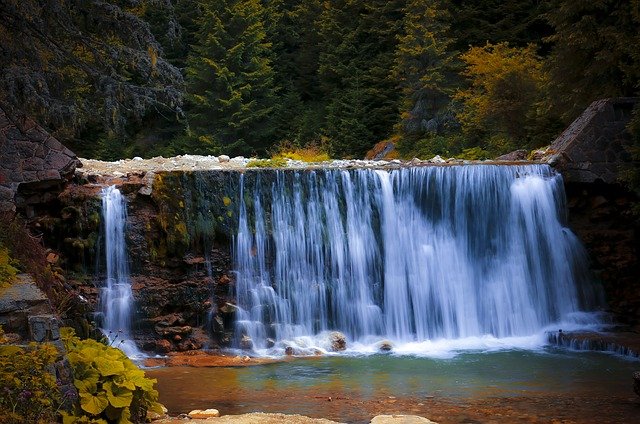Over the past few days, I participated in a number of sessions of the online Nature Summit (11-17 May 2021) and found it very inspiring, enlightening and encouraging. I subsequently upgraded from the free version and gained lifetime access to the 30+ presentations (both audio and video versions) as well as extensive bonuses. The bonuses included access to the 35 sessions from the 2020 Global Summit on Mindfulness and Compassion together with other resources such as meditations and mindfulness practices.
The themes of the Nature Summit included developing mindfulness and deep listening through nature; finding wellness, healing, and creativity in nature; nature-based leadership; and protecting the environment. The Summit provided a holistic approach to the beauty, wonder and power of nature.
Becoming grounded in nature
One of the key speakers was Kaira Jewel Lingo, mindfulness teacher, educator and editor for Thich Nhat Hanh’s book, Planting Seeds: Practising Mindfulness with Children. Kaira focuses heavily on mindfulness in education and shares the wisdom of her 20+ years of mindfulness practice including years spent in Thich Nhat Hanh’s monastery as a Buddhist nun where she developed her commitment to his tradition of Engaged Mindfulness.
During the Summit Kaira discussed how the earth engenders a sense of belonging and connectedness. She shared Thich Nhat Khan’s daily practice of a one-hour community walk in nature, interspersed with a 20-minute sitting meditation. She explained that the communal walk done slowly with full attention and with “loving steps on the earth” brings awareness of a perspective that is larger than ourselves. Kaira maintains that this close engagement with the earth takes us outside ourselves – outside self-absorption, the busyness of daily life and the afflictions of modern living.
Kaira also discussed the mindfulness practice of lying prostrate on the earth. Through “touching the earth” we can release our suffering and frustrations and imbibe its energy and resilience. She suggested that this practice can also connect us to the healing power of nature. One of the interesting exercises she does with school children is to have them touch a tree while blindfolded, then run and locate the tree without the blindfold, but relying solely on their sense of touch. Kaira laments how under-utilised our senses are, especially our vision which accounts for “80% of attention”.
Caring for the environment
Jane Hirshfield – poet, editor, translator, and author – in her session during the Nature Summit, discussed how nature engenders “a creative awakening”. Jane, as an internationally acclaimed poet, has become widely known for “working at the intersection of poetry, the sciences, and the crisis of the biosphere”.
As a trained Zen practitioner, she has a deep commitment to pursue mindfulness through nature. Her daily “trundling” in nature reinforces her view that the “natural world is the first field of [mindfulness] practice”. She argues that our environmental crisis has arisen through a lack of adequate mindfulness, of awareness of nature and our co-dependence. She maintains that “awareness is the ground for change”. Appreciating nature, its energy and beauty, develops the desire to protect it.
Jane indicated that after the election of Donald Trump, she took political action every day to protect the environment through her poetry, essays and writing letters to people in power. Donald Trump’s actions on the fifth day of his presidential office inspired a ground-breaking poem, “On the Fifth Day” that went viral and was read out by Jane at a protest march for scientists and the environment. On his fifth day as President, Donald Trump had ordered the removal of any reference to climate change from the Government’s website and forbade environmental scientists employed by the Government to speak in any public domain about climate change. Jane spoke about the resultant rise in “eco-poetics” and “poets for science”.
Jane explained that she writes her poetry not as a political action but more as a person finding her way in life and trying to meet daily challenges. However, given her focus and standing, she has been cast as a climate change activist who is grateful to the natural world for enabling her to pay attention, to achieve balance in her life and to see reality as it really is. While she is an extreme introvert, she engages in extroverted activities such as public speaking to communicate the urgency of the message about avoiding extinction that will occur if we keep destroying our planet. Jane suggests that we each need to go outside our comfort zone and contribute “one small decibel in the chorus of sanity” – to add our voice and skills to achieving balance on a personal and an environmental level.
Reflection
There are many ways to discover the benefits of nature. The Nature Summit provided a wide range of meditation and mindfulness practices that centred on nature. Many of the presenters noted that if we really appreciate the beauty of nature, we will be moved and motivated to protect it. As we grow in mindfulness through nature meditations, mindful walking, and other mindfulness practices, we can experience the healing power of nature, our connectedness to every living thing and gain the courage and resilience to adopt a form of Engaged Mindfulness that utilises our core competencies and the learning from our life experiences. Jane’s latest book of poems, Ledger, is a call for “personal, ecological and political reckoning”.
Growth in awareness of nature and its beauty will motivate us to protect the natural treasures that we are able to enjoy. Meditating on the elements of nature can bring equanimity to our lives despite the turbulent waves of our human existence.
________________________
Image by Valiphotos from Pixabay
By Ron Passfield – Copyright (Creative Commons license, Attribution–Non Commercial–No Derivatives)
Disclosure: If you purchase a product through this site, I may earn a commission which will help to pay for the site, the associated Meetup group, and the resources to support the blog.
